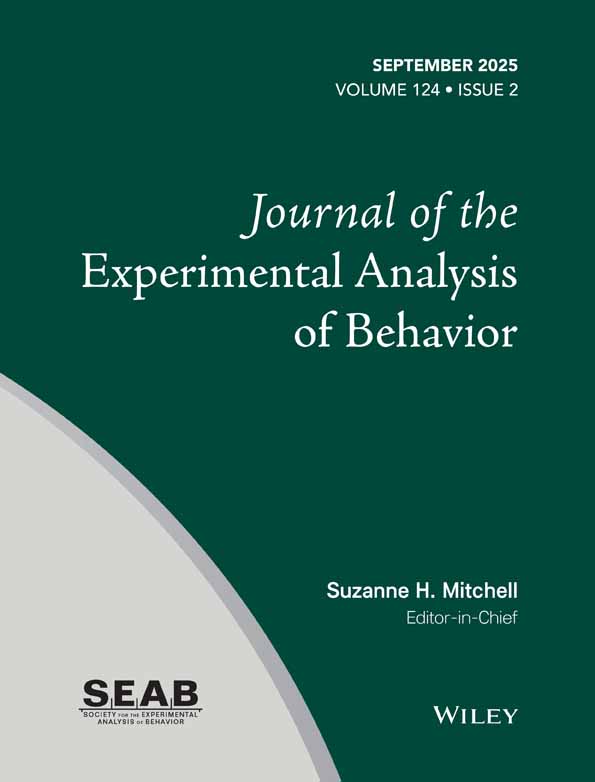PUNISHED AND UNPUNISHED RESPONDING IN MULTIPLE VARIABLE-INTERVAL SCHEDULES1
Research supported by Grant APA-161 from the National Research Council of Canada and Grant #107 of the Ontario Mental Health Foundation to G. Walters.
Abstract
The performance of rats trained on multiple variable-interval schedules was examined before, during, and after punishment. The same linear function related relative response rates to relative density of reinforcement both in the presence and absence of punishment. Equal relative suppression was seen in both the high and low reinforcement density components. The intercept value of the function was zero. Each component of the schedule was programmed on a separate lever: thus during any component, there was an opportunity for responses on the nonoperative lever (errors). The proportions of these errors declined to a near-zero value during punishment and did not regain their prepunishment values after punishment was removed, suggesting that some discrimination learning occurred during punishment. Recovery of response rate during punishment was seen only where a greater-than-zero probability of reinforcement was associated with the response.




